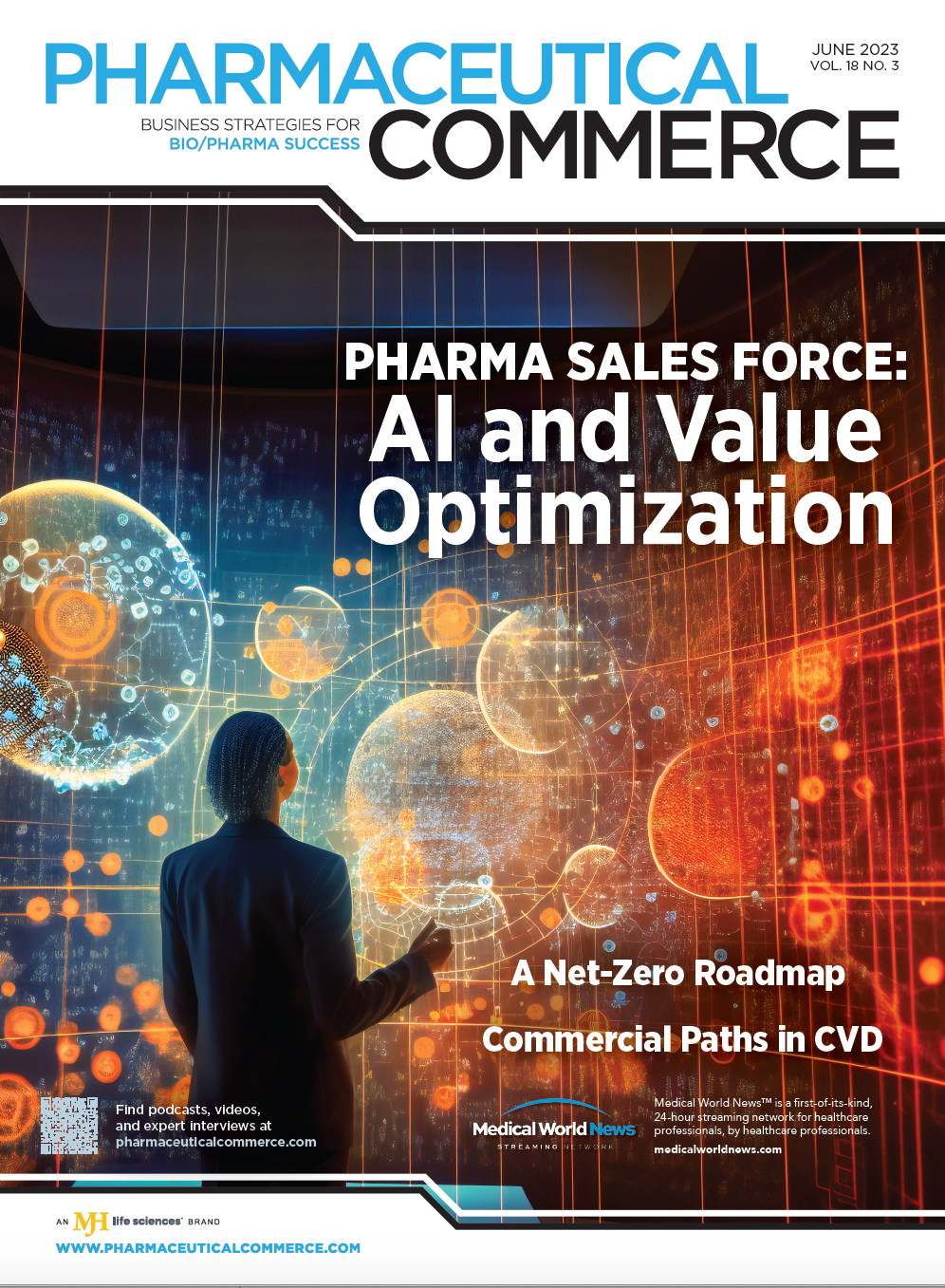Operational Trends Surrounding the Pharma Sales Process
The publication's June installment features a plethora of coverage, ranging from the learning curve in digital adoption to an overview of the CVD market.
Mike Hennessy Jr.

Pharmaceutical Commerce’s June issue homes in on a variety of subjects, headlined by the ongoing changes impacting today's new-look pharma sales force. Factors explored include the industry's learning curve in digital adoption; hybrid selling; sustainable travel initiatives; and efforts to reduce operational costs. In his feature, Editor Emeritus Nick Basta points to “generative AI” as the latest hot trend in this area, with the most notable example being ChatGPT. When it comes to technology driving sales force trends, a Numerof & Associates survey finds that 85% of respondents agree that “digital content and virtual meetings will remain significant components of the customer engagement model, even if access restrictions [some of which were imposed during the pandemic] are relaxed.”
Sustainability, on its own, continues to be an evolving and closely watched topic as well. In this issue, guest contributor Richard Peck shares what he thinks are realistic goals for the industry in achieving carbon neutrality across the supply chain. The goal, he notes, is to find the optimum balance between operational efficiency, product protection, and sustainability.
Taking a dive into the regulatory aspect of pharma—specifically market access and pricing—Ed Schoonveld details the latest in the implementation of the Inflation Reduction Act (IRA) in the US, including questions arising such as how the negotiated price will be set by the Centers for Medicare & Medicaid Services.
On another note, comprising this issue’s “In Focus” feature, Contributing Editor Suzanne Shelley offers readers an overview of the cardiovascular disease (CVD) market—a therapeutic category projected to rank the fourth highest in terms of global spending by 2027. Breakthrough drugs have helped to transform this space as of late, including the approval last year of Camzyos, the first and only therapy approved in the new cardiac myosin inhibitor class for the treatment of obstructive hypertrophic cardiomyopathy (oHCM), which is considered the most common hereditary CVD.
It’s amazing to think that we are already halfway through 2023! We hope you enjoy this issue, and look for plenty more noteworthy content ahead. Thanks for reading.
— Mike Hennessy Jr., President and CEO, MJH Life Sciences
